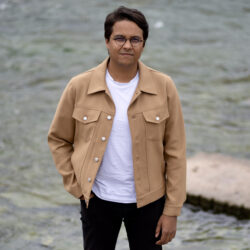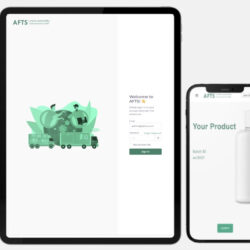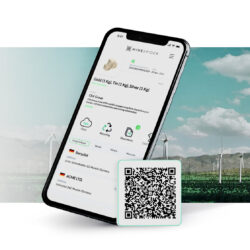Start-up Pelt8 helps gather sustainability data from supply chain partners

Swiss-based Pelt8, founded three years ago, offers companies a SaaS tool to easily collect sustainability data from supply chain partners. From the tool, reports can automatically be created that comply with the Corporate Sustainability Reporting Directive (CSRD) or other sustainability standards. “It is precisely this flexibility that sets us apart from other solutions,” says co-founder Gwen Jettain (pictured).
Companies are under great pressure to disclose to the outside world how sustainable they are. In 2025, large listed companies must submit their first, mandatory CSRD report for 2024. In it, among other things, they must report the emissions associated with their downstream and upstream supply chain. They must also disclose how they handle packaging, how they heat their buildings, how circular their products are and how they treat their employees. In short, it involves a wide range of sustainability issues that must be reported in specific ways and through specific metrics. Large customers and financial institutions are also increasingly demanding such reporting.
Platform for suppliers
To address the complexity of sustainability reporting, the Swiss supply chain start-up has developed an online tool that allows companies to manage all their sustainability data more easily and from one place. “Before the need to collect Scope 3 data, companies often worked with Excel tools and all kinds of questionnaires. These are not only error-prone and labour-intensive, but the resulting reports are also not verifiable. With our tool, companies can give their suppliers access to a platform where they can enter all the necessary data and also find information on how to achieve their sustainability goals. Those suppliers can also use the same account to manage data for other customers, so this is efficient for them too.”
More than just CSRD
Pelt8’s solution differs from other tools in its flexibility and ability to meet various non-financial reporting requirements within a single platform. It is the basis not only for the aforementioned CSRD reporting, but also for other sustainability obligations such as GRI, TCFD, ISSB and CBAM. Jettain: “Our customers can be sure that they are using the right templates and calculation rules, and can also configure the tool to meet their internal sustainability requirements or specific customer requirements. Support is also provided for identifying sustainability risks and implementing improvement measures. All from a single platform.”
Finance is joining in
Jettain sees that there is already a lot of interest in sustainability and in Pelt8’s solution, even though three years ago he had expected the digitization of reporting to move faster. “Reporting is becoming increasingly complex and companies want to get rid of their Excel solutions. But at the same time they do not have an infinite budget and there is a shortage of experienced sustainability professionals.” Since the tightening of EU rules around sustainability last October, he has noticed that companies are picking up the pace. “In many companies, Finance departments are now also joining in. That is a good thing, because Finance people have a lot of experience with accountability and mandatory reporting.”










